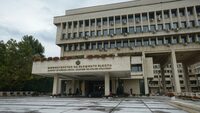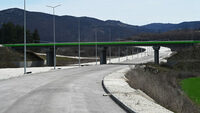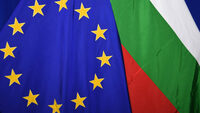Search
112 results

Who wants a free market? Bulgaria postpones wholesale electricity market liberalization
Meanwhile, households will have missed the optimum moment for liberalization because electricity prices are currently at their lowest

Bulgaria has utilized only 4% of European funds since 2021
For the first time since joining the EU, Bulgaria has got along with almost no European funding for several years

The week: How hard is it to buy trains?
The train won't be coming, The free electricity market neither, And the new Constitution is a mess

Top 25 agricultural machinery dealers increase revenue by a third in 2022
All the importers in the top 25 have registered a profitable year

The week: Brace, the rotation is coming
The Suddenly-important Ministry, More Russian spies pop up, and Meta buys a company

Bulgaria’s new factories in 2023: Part II (The North)
Compared to previous years, projects are now equally distributed between southern and northern Bulgaria.

The week: Gooood morning Vietnam!
Back in Vietnam, We are not harassing Austria, Why is Sofia lonely

The week: 3 focal points to watch out for post-Schengen
Bulgaria gets a half-Schengen, Peevski gets a half party, and something awful is going on in the police

Bulgaria's 2024 Budget: Focus on Infrastructure and Defense Investments
Finance ministry targets 3.2% GDP growth, sees inflation at 4.8%

The week: The day of the Second Payment has arrived
One EU instrument which actually works, Wars bring the Balkans closer, The 6 centers of Bulgaria

The week: Bulgaria's coal reckoning - this is not the 80's
Why Stara Zagora is no Yorkshire, what the hell is happening on the housing market and a Bright Mind

What’s next for Bulgaria’s coal power plans?
The government is preparing a final recovery plan proposal and is now planning to close 800 MW of coal-fired capacity and limit the capacity of Maritsa East TPPS by 30%

The hidden Roma economy and what we lose by letting them go
We can't keep people from leaving - or data from leaking + a rock from the sky

Budget plan 2023: More VAT revenue, less capital spending to contain budget deficit at 3%
Finance Minister Assen Vassilev presented the framework of his plan for the state finances, which should be ready at the beginning of July

The week: Ursula to the rescue, charging stations are coming, Schengen and other pipe dreams
The dangers of indecision











